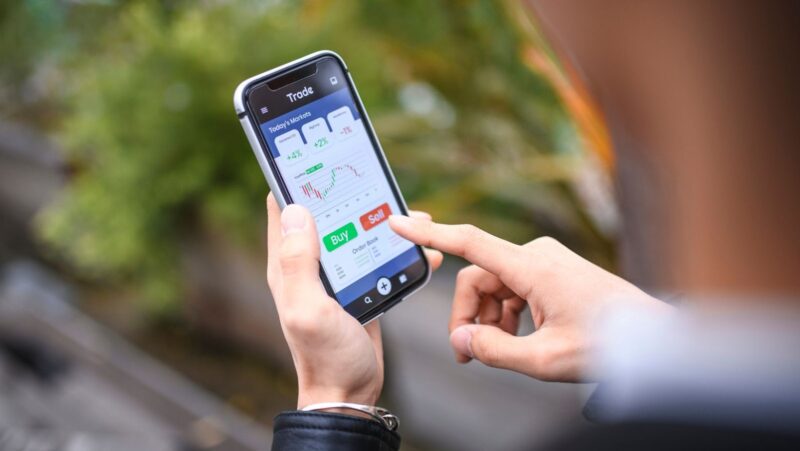It’s been the talk of the town – US Representative Alexandria Ocasio-Cortez is calling for a congressional hearing on the Robinhood App after it restricted buying shares of GameStop. What has prompted this demand? And what’s the outcome so far? Let us explore what happened with Robinhood and its potential implications.
Introduction
Robinhood is an American financial services company based in Palo Alto, California. It was launched in 2013 to democratize stock trading and make it accessible to everyone at low or no cost. The company’s freemium model, combining free access to online stock trading with premium upgrades, has become widely popular among investors of all levels.
Unfortunately, on March 11th, 2021 Robinhood faced a major PR disaster due to their abrupt decision to restrict trading on certain stocks surging during the WallStreetBets frenzy days earlier. This sparked major backlash online as individual investors saw their portfolios ruined overnight due to Robinhood’s decision to suspend trading of certain securities following significant volatility in those markets. This incident has caused irreparable damage to Robinhood’s reputation and sparked calls from regulators to investigate its practices. In this article we will be looking at the events leading up to this PR disaster and exploring its potential implications for Robinhood going forward.
What is Robinhood App?
Robinhood App is a free investing app released to the public in March 2015. The app allows users to trade stocks and other investments, free of any commissions with no minimums on their trades, making it an attractive choice for new or novice investors. In addition, users can buy and sell US-listed stocks, exchange-traded funds (ETFs), options and cryptocurrency through the Robinhood platform.
Robinhood’s founding team was motivated by their belief in democratizing access to the stock market by making investment affordable for everyone. Starting with commission-free trading as its base premise, Robinhood App continues to focus on building innovative products that make banking more accessible, intuitive and enjoyable—all while maintaining its commitment to staying within regulatory compliance at all times.
Robinhood is an American financial services company based in Palo Alto, California. It was launched in 2013 to democratize stock trading and make it accessible to everyone at low or no cost.
In late January 2021, there was an uproar when customers of Robinhood trading app experienced limited access to buying certain securities due to the lack of capital that caused significant volatility during the GameStop stock surge fueled by a Reddit group called WallStreetBets. While many questioned whether this limitation had come from Robinhood’s end or ‘settlement delay’ from respective exchanges or clearinghouses due to a surge in trades, it further highlighted how platforms such as these operate with little oversight and can aid unchecked manipulation in stock markets.
US Representative Calls The Congress To Investigate Robinhood App
After introducing controversial buying and selling restrictions imposed by Trading App Robinhood in late January 2021, a US Representative calls on Congress to investigate what happened. Rep. Katie Porter, a Democrat from California, issued a statement on Saturday saying it was “imperative” that Congress investigated the decision to restrict trading for certain securities such as GameStop, AMC Theatres and BlackBerry among others.

Porter argued that “these restrictions were implemented without proper risk management plans in place,” raising questions about market fairness and investor access. She also noted that Robinhood’s actions came shortly after hedge funds had taken sizable bearish positions which suggests “there may have been coordination or other serious issues at play.”
Additionally, Porter called for greater transparency for the actions taken by Robinhood and urged Congress to explore potential solutions such as improved risk management protocols surrounding algorithmic trading systems or special payments designed to help everyday investors who felt they may have lost money due to the stock market’s volatile movements earlier this year.
Impact of The Investigation
The company has since stalled plans for a new fundraising round as it deals with the fallout from earlier this year, which saw the app become a criticism target after preventing traders from buying certain stocks and prompting an official investigation. The U.S. Securities and Exchange Commission (SEC) and the House Financial Services Committee launched a joint probe into whether Robinhood violated market manipulation rules when it restricted users from trading certain stocks in January 2021.
They will also investigate whether the platform has any conflicts of interest between analysts and traders and whether its practices are adequately protecting investors against potential charging errors or market manipulation violations. This investigation could lead to alternative remedies, including sanctions on the company, changes to its business practices, or further restrictions on how Robinhood invests in and finances its business activities.
The company has since stalled plans for a new fundraising round as it deals with the fallout from earlier this year, which saw the app become a criticism target after preventing traders from buying certain stocks and prompting an official investigation.
In March 2021, Robinhood agreed to pay a $65 million penalty to settle charges that failed to disclose how much money it was getting from making trades with high-frequency-trading (HFT) firms, who were profiting off of trades that Robinhood users were placing with their accounts. In addition, as part of the settlement agreement, Robinhood agreed to refrain from misleading customers about any material facts related to trading activity on their platforms and committed to strengthening their operations accordingly — one potentially significant step toward avoiding conflicts of interest in future securities transactions involving customers’ funds, shares or acts of self-dealing by members or between members and non-members alike.
Reactions from Robinhood and Other Stakeholders
Robinhood’s disruption of the stock market was met with a chorus of criticism and praise. Robinhood CEO Vlad Tenev told users, “We know this situation has been deeply unsettling for many of our customers. However, we remain committed to working around the clock to ensure our platform remains fast, reliable and available.” Other companies involved were also keen to address their part in the disruption.

TD Ameritrade CEO Tim Hockey said his company had followed suit with Robinhood in originally restricting activity on certain stocks but had since lifted those restrictions after assessing the market situation. Meanwhile, critics and supporters galvanized behind the hashtag #Freethestock on Twitter in support of or opposing Robinhood’s decision-making processes. While some expressed anger about their inability to buy or sell certain stocks during this time, others spoke up about how they thought it benefited smaller investors who could ride out the volatility which large institutional investors created artificially.
Politicians from both sides of the political aisle were quick to react, citing concerns over personal data security and free market principles and pointing partially at potential short selling abuse as an underlying factor of these events. The White House stated it was monitoring events but did not make further comment at this stage of investigation into any wrongdoing occurring within markets due to these actions.
Conclusion
Despite the ire towards Robinhood and its app following the GameStop stock incident, it is important to note that they were merely responding and were not the instigator of any illegal activity. Through their actions, Robinhood made it possible for many people without access to traditional trading platforms to engage in investment activities.
However, the company could have handled their customer communication more efficiently and should take remedial action to ensure efficient customer service. From a regulatory perspective, it is essential to evaluate brokerage regulations in detail and work on creating more transparent laws that give due consideration to customer rights and restrict market manipulation. It is also important for state authorities to continuously monitor for activities that could be deemed as market violations or fraudulent acts. Increased regulatory oversight would also help prevent similar incidents by enforcing operations transparency.
tags = robinhood app, US congress, congress investigation, us representative, banned small investors, committee robinhoodkelly theverge, robinhood investigation, house robinhoodkelly theverge, stock trading company, stock investment company, investing app, stock trading app


